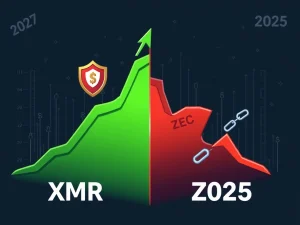Ghosting in Hiring Skyrockets 112%: Former TripAdvisor CEO Shares His Shocking LinkedIn Experience

Have you ever been ghosted on LinkedIn? You’re not alone. Former TripAdvisor CEO Steve Kaufer recently revealed his surprising experience with LinkedIn ghosting after stepping down from his high-profile role. This trend isn’t just affecting executives – ghosting in hiring has surged 112% since 2020, creating new challenges for professionals worldwide.
The Rising Epidemic of Ghosting in Hiring
Glassdoor data shows mentions of ghosting in job interview reviews increased by 112% between 2020 and 2023. This disturbing trend affects both job seekers and employers:
- 69% of HR professionals admit to ghosting candidates
- 60% of candidates encounter “ghost jobs” – fake listings
- 75% of job-seekers have ignored prospective employers
- 93% of Gen Z workers have skipped interviews
Why LinkedIn Ghosting Happens to Even Top Executives
Career expert Jasmine Escalera explains that ghosting often reflects shifting priorities rather than personal rejection. “If someone disappears without a word, they’re simply not the right match,” she notes. This applies equally to companies and individuals.
Powerful Strategies to Combat Professional Ghosting
Escalera recommends these career strategies to overcome ghosting:
- Build relationships beyond job titles
- Highlight transferable skills in applications
- Network persistently but professionally
- Follow up politely with silent connections
- Maintain positive momentum despite setbacks
Turning Ghosting Into Career Growth Opportunities
While frustrating, ghosting can redirect you toward better-aligned opportunities. “The right company will make it known they want you,” Escalera emphasizes. In today’s evolving job market, resilience and adaptability are key.
FAQs About Ghosting in Hiring
Q: How common is ghosting in the job market today?
A: Extremely common – ghosting mentions in interviews rose 112% since 2020, and 69% of HR professionals admit to doing it.
Q: Why do employers ghost candidates?
A: Reasons include overwhelming applicant volumes, poor hiring processes, or maintaining a “talent pipeline” with ghost jobs.
Q: Should I follow up if I’ve been ghosted?
A: Yes, one polite follow-up is appropriate. If no response, move on to other opportunities.
Q: How can I avoid being ghosted?
A: Build strong networks, tailor applications, and target companies with transparent hiring practices.
Q: Is ghosting worse in certain industries?
A: Tech and startup sectors report higher ghosting rates, but it occurs across all industries.









